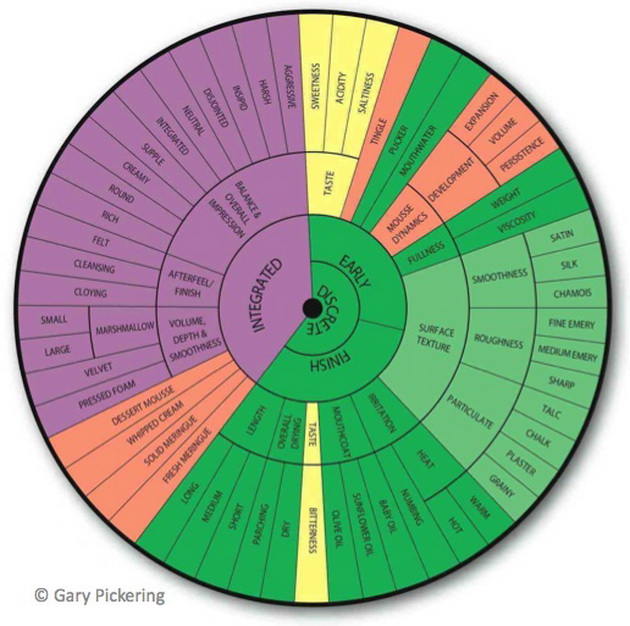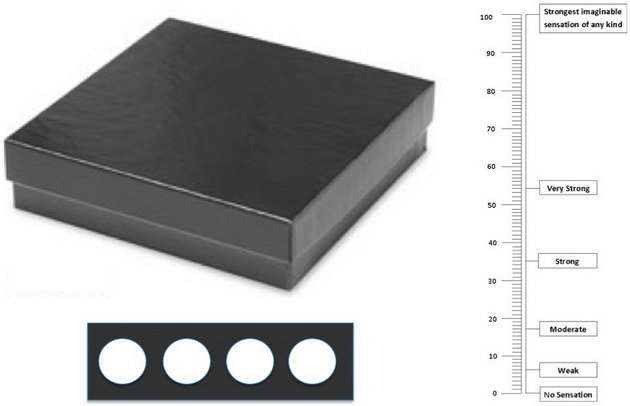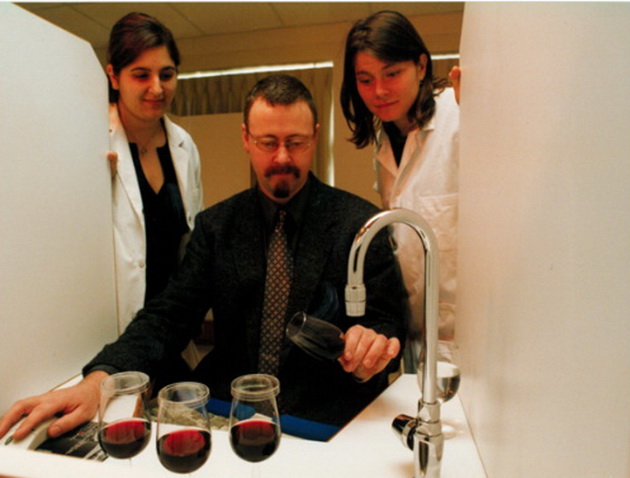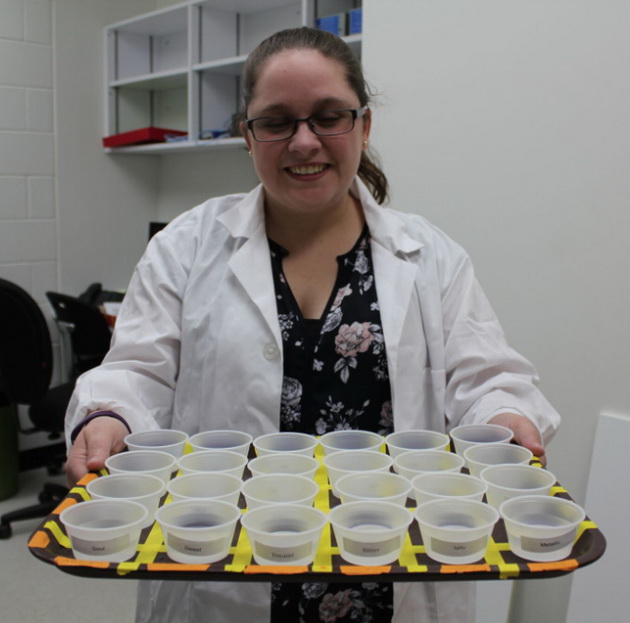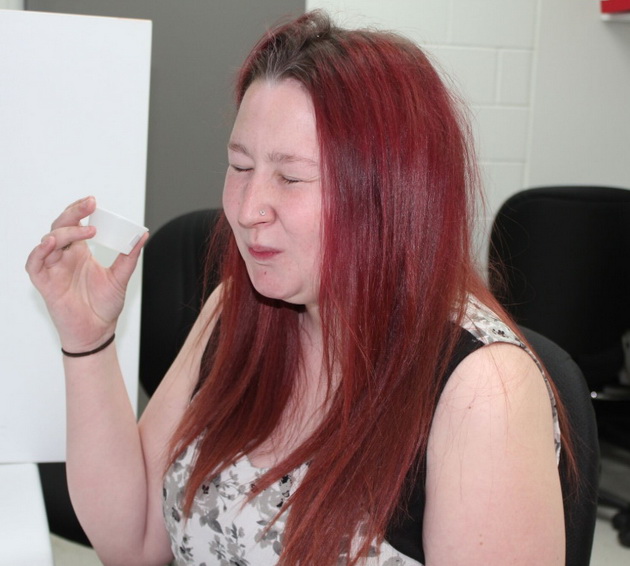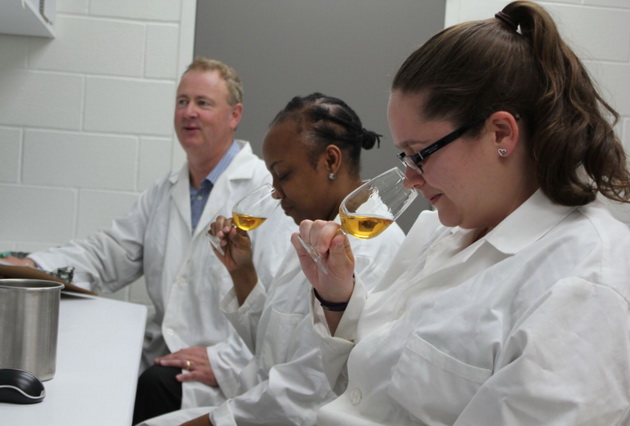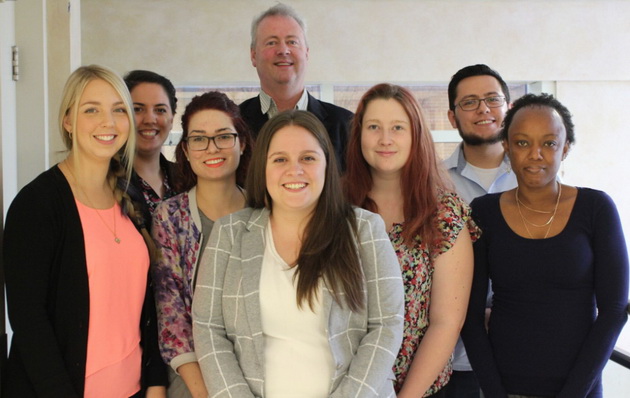Our guest this evening is a Professor of Wine Science and researcher at Brock University’s Cool Climate Oenology and Viticulture Institute, in Niagara. He holds a doctorate in Wine Science from Lincoln University in Canterbury.
His focus is on wine flavour and sensory science. He has published more than 100 papers, patents, book chapters and conference proceedings.
He is the inventor of the white wine mouthfeel wheel and the supertasting kit, and is co-developer of the Wine Aroma Kits. He’s the recipient of a number of research awards, and is passionate about wine education, and of course, wine.
And he joins me live now from his home in Niagara: Welcome Dr. Gary Pickering!
Click on the arrow above to hear Gary’s story.
Watch previous episodes of the Wednesday Wining Show (WWS) and find out who’s coming up next.
Dr. Gary Pickering, a Professor of Wine Science and researcher at Brock University’s Cool Climate Oenology and Viticulture Institute, in Niagara, Canada. He holds a doctorate in Wine Science from Lincoln University in Canterbury, and prior to his current appointment was a lecturer at Charles Stuart University in Australia and senior lecturer and research manager at the Eastern Institute of Technology in New Zealand. His teaching and research focus on wine flavour, sensory science and development of novel wine products and processes, and he has published over 100 papers, patents, book chapters and conference proceedings. Gary is the recipient of a number of research awards, is passionate about wine and wine education, and is working on a number of books.
Gary is inventor of the white wine mouthfeel wheel and the supertasting kit, and is co-developer of the Wine Aroma Kits. In addition to his work as President of Picksen International Inc, Gary serves as an international wine judge, most recently for Cuvee and InterVin. He also enjoys a good glass of wine!
What was the exact moment when you decided to teach wine in an academic setting rather than say make wine? Where were you? Why were you intrigued?
What is a supertaster?
Do more women than men generally tend to be supertasters?
What is the wine supertaster kit?
Why did you decide to develop it?
Is it mainly those in the wine business who buy it?
Have any famous people inside or outside the wine business used it?
What was the most surprising insight you discovered while creating the kit?
What’s the most interesting thing that someone has said about the kit?
How does taste sensitivity, in general, influence peoples’ wine behaviour?
Is umami important in wine?
Is this in any way related to your research on how those who are good at perceiving sensations, like bitterness and astringency in food, more likely to consume all kinds of alcoholic beverages, while those who respond strongly to qualities such as sourness and umami are less likely to drink wine in particular?
Why is that?
Why umami in particular as it means savoury or tasty generally?
Taste also includes “chemesthetic” responses to astringency and metallic sensations as well as prickliness, viscosity and heat. How do these taste sensations affect whether we like wine or not?
What were the consequences or changes, if any, in the wine industry, or for the people involved?
Tell us about the white wine mouthfeel wheel?
Are you going to develop one for red wine? Other wine types?
What’s the biggest difference in mouthfeel for red and white wines?
We tend to focus on wine’s aromas and flavours. Why is mouthfeel important in wine?
Lise Charest Gagne41:37 Some different textures put me in a mood. Example crisp texture makes me what to run off the dock into the lake. Full body silky makes me want to get in front of the fire..
Lise Charest Gagne28:48 What do the formal wine training agencies think of these mouthfeel terms?
Jim Clarke28:49 I was at the Winnipeg Wine show years ago, and realized after a while that when tasting I was literally feeling shapes on my palate, ie the tastes hit y mouth in a geometric shape, round, flat,points, and even triangular – as if only specific taste buds were being hit….
Paul E Hollander51:28 Good discussion this evening.
Elaine Bruce7:27 Hi – fascinating topic !!!
Elaine Bruce24:56 Love the sensory kits !
Jim Clarke51:34 How about cheese super-tasters?
Jim Clarke53:03 We need Gary back again
Lise Charest Gagne50:27 Thank you!!!! Please come back
Deborah Podurgiel53:18 Great Chat. Thank You, Natalie, Dr. Gary.
Lori Sweet50:27 Great discussion!
Elaine Bruce17:06 I lost my sense of smell and taste for a bit *due to health- they all came back in stages, but even more so now. I dont think anyone quite believed me and it was only when a chef called Grant Achatz described what happened to him, that it all made sense.
Flavours, not only in wine but all tastes is why I’m also obsessed with herbs etc. I often open a wine, just to smell for a while, before tasting it even
Lise Charest Gagne45:45 Question can supertasters tolerate made to order single notes wines?
Beverly Asleson32:25 What is your favorite wine?
Natalie: All right. Have you ever wondered what a supertaster is or how about the importance of mouthfeel? The texture of wine? We talk a lot about aromas and flavors, but what about the mouthfeel? That’s, that’s pretty fundamental to your enjoyment of wine. And we’re also going to throw into this blend tonight, some questions and some issues on climate change and how that’s going to profoundly affect the wine styles that you drink. I’m Natalie MacLean, editor of Canada’s largest wine review site @nataliemaclean.com. And we gather here every Sunday at 6:00 PM Eastern. That’s Toronto New York time to talk to the most interesting people in the world of wine and a, we call it the Sunday sipper club. Now, before I introduce our guest fully, please chime in in the chat in the comments section. Where are you logging in from? What’s in your glass? What’s the weather like
Natalie: all right, so let me introduce my guest tonight. Our guest this evening is a professor of wine science and researcher at Brock universities. Cool climate enology and viticulture Institute in Niagara. He holds a doctorate in wine science from Lincoln University in Canterbury. His focus is on wine flavor and sensory science. He’s published more a hundred papers, patents, book chapters, and conference proceedings. He is the inventor of the white wine mouthfeel wheel and the super tasting wine kit and is the co-developer of the wine aroma kits. He’s the recipient of numerous research awards and is passionate about wine education and of course wine. And he joins me now live from his home in Niagara. Welcome to the Sunday Sipper club. Dr. Gary Pickering. Hello.
Dr. Pickering: Hi Natalie,

Natalie: Great to have you with us. So, now I’ve got all sorts of questions related to our topic, but I have to you, you teased me with a story but didn’t tell me it yet. Can we just start with that story about somehow that’s wine-related or related to you and us? Senator Rand Paul. I would love to hear that one.
Dr. Pickering: Sure. Well, as, as a wine academic, we lived very sheltered lives. , but it’s the one reason anecdote which, which I found amusing. , are you, his colleague and I published a study last year, looking at taste and flavor sensitivity and how that relates to people’s alcohol behavior. , and Senator Rand Paul, who was a prominent Republican in the US and the member of the Trump administration, picked up on our study and, , and a presentation in October to the federal spending oversight committee, which was considering, government funding for research. She called our study a ridiculous and a waste of NIH and money, which I assume as part of a wider effort to defund science in the US, but, we academics don’t make the political limelight very often, so, , that was kind of fun being criticized by the Trump administration means we’re doing something right. So I take those a
Natalie: I love that means you’re doing something right. Yes, I would, I would consider it quite an honor to be criticized by the Trump administration. You’re definitely on the right side of things. Okay. Without getting too political vet. So, Gary, I would love to dive in. Now you have been a professor and a researcher for a long time. What made you take the academic path, say, versus becoming a winemaker yourself?
Dr. Pickering: Yeah, great question. , for me, the wine was a second career. My first career was, wasn’t healthcare, for about 10 years and I got burnt out with that and a healthcare nurse. Oh wow. How fascinating. Wow. Working in acute psychiatry. Yeah. I’m not ready for a career change. And, I, I’ve always loved science and, always had always been, a wine drinker. Wine enthusiasts played around with their mature winemaking. And those two things sort of coalesced at the time where, Lincoln university was offering a new, a new graduate program and one science. So what can go wrong? I thought, so know enrolled in that program and, enjoyed it so much. Continued with that, on the research front and I finished my PhD there and the, I guess the rest is history. So that was around about 1991 that I might, that, that career change.
Natalie: Wow. That’s quite a dramatic pivot as they say these days. That’s fantastic. You developed a supertaster kit. So before we get into what is that kit, maybe you could define for us if it’s possible, a supertaster what is a supertaster especially when it relates to wine.
Dr. Pickering: How much time
Natalie: apparently not enough.

Dr. Pickering: I’ll probably be succinct. , but then, the term super tasted was coined by a colleague in the States Islander barter shock civil years ago. And typically it refers to people that, can taste a particular compound. The compounds called sucks in proper Thyrosol we call a prop for short. And what Linda found and some of her colleagues was that when you give this compound to people, they either don’t taste it at all and they’re called non-tasters. They experience the compound is somewhat bitter. They’re called medium tasters or they never talk to you. Again. They experienced compound as intensely bitter and they’re called supertasters. But they’re really important. Part of the story is that it turns out that your super tasting status, whether or not you’re a non-taster or medium taste or supertaster, also extends to, to real-life too, to foods and to beverages.
Dr. Pickering: So for instance, supertasters tuned to experience the, the sourness or the bitterness in wine or in vegetables more intensely than the other types of tasters. That’s also an interesting cause that looks to have, some health-related consequences. So for instance, supertasters, while they tend to eat less sugar, , and, eat less fat, they also tend to eat less green vegetables because they find the bitterness of the frozen vegetables, a versa. And so that has consequences in terms of risk of some cancers. So it’s a really interesting proxy for general taste sensitivity that looks to have some muscle interest in health consequences. And our lab has taken this and looked at what that means for alcohol consumption, including wine.
Natalie: And so do supertasters tend to, I don’t know if this is a conclusion you came to at all or not, but do supertasters tend to drink more wine or less wine or is that not related at all?
Dr. Pickering: And it’s related. And as with most things when it comes to human behavior, the answer is not black and white. , but we’ve got some general, general indications and so supertasters overall tend to, to drink less alcohol, including wine. , and if you, and if you are a wine drinker and you’re a supertaster, it looks like that, your preferences for different wine types, , are generally different than people that are, are not supertasters.
Natalie: And would they be, , toward, wines that don’t have the bitterness, like a Pinot noir or not a say Barolo or something like that?
Dr. Pickering: Yeah. Again, that’s one. There are gray areas that some research, including ours, has found that others have found different results and general supertasters tend to prefer suite of things. And so they’re more likely to report, report liking and drinking more sweet wine for instance.
Natalie: Hmm. Yes. And, so this would be related. , but I had my tongue tested or whatever by Tim Han. I in California and I’m sure you’re aware of him and it turns out I’m a supertaster, but I can’t walk past the all of sections in the supermarket without holding my breath. And you know, it, it, and I’ve heard it described like, I’m not so much that you’re a better taster with superpowers, super wine tasting powers, but that you’re just more sensitive. It’s like living with 500 fingers, not 10. I think that was Linda Barsh’s talk. Analogy, but I thought that was quite apt. Like it’s just, you’re so tuned in, so sensitive to everything.
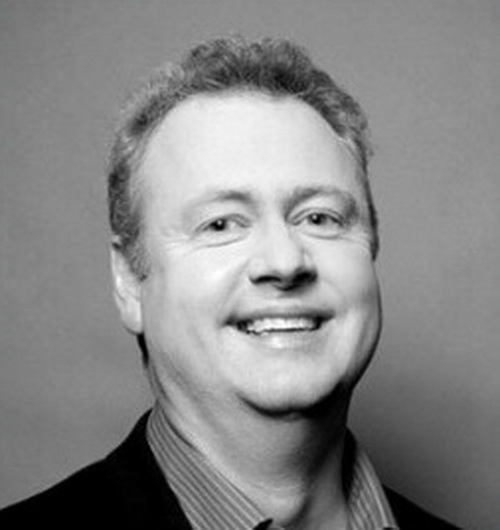
Dr. Pickering: Yeah. , a couple of things there, Natalie. First of all, it’s, it’s an awful term. Supertaster, and I think to wonder herself wishes was never coined cause there’s so much, you know, valued judgment attached to that. You know, look at me, I’m a supertaster, I’m actually not, by the way nowadays we tend to use languages like the hyper taste or hypo taster and, you’re right. Everything else being equal supertasters , have more tastebuds, a much greater density of taste buds on their tongue. And what that means is they’re getting, getting more signal. So when they take a, a glass or a mouthful of wine to the mouth, they’re getting like a kick of the better compounds, the cell compounds, these pungent compounds and so on. So they’re experiencing things more intensely. And also, they a few different thresholds. That means they can pick up, small nuances in terms of taste, better than, than the rest of us.
Natalie: Is that like being able to listen to a dog whistle or something like it’s just a, a higher range of frequency on taste?
Dr. Pickering: Yeah, I think there are some supertasters that as the issue and they do tend to avoid all sorts of, of, of a versa, food and alcohol and for others they, they learn to live from the depth to that sensitivity. And, and in fact, there’s an interesting interaction with personalities. So you find that supertasters for instance, who are very adventurous in terms of personality actually seek out hot foods. They seek out high alcohol wines. , whereas supertasters that , that are less, , adventurous in terms of personality are found those sensations, very averse lips so they don’t tend to eat those foods or will consume those drinks.
Natalie: Yeah. Well, I find it an uncanny when I’m Tim Han, I was saying, ah, you probably cut the tags out of your clothing. I said yes. Like everything is a hypersensitive world of doing from your studies or other studies that you’ve read, do, is it more women than men who are tend to be supertasters? Is that truth or, or myth?
Dr. Pickering: Yeah, look, I mean, but both from our own work and from colleagues, yes. Look, it looks like you are more likely to be a supertaster if you’re a woman that may be as high as, as, as twice as likely. , and of course, a woman has other advantages too when it comes to wine. They, they tend to be bitter discriminators they tend to be able to use words and vocare better to describe what they’re sensing and wines. So they’re basically a lost cause. Us, me and Natalie.
Natalie: Well that’s what I was getting at and I’m so glad you’ve joined us to help prove the point. That’s great. That’s interesting because I do think that, again, this is really grossly generalizing, but if we think of men being more right-brained, spatially math, all that sort of stuff, and women being more left-brain logic words, et cetera, putting words to aromas, what you said, really picks up on those generalizations for sure. What do you mean by women tend to be more discriminating? What does that mean for you?
Dr. Pickering: So most of the work that’s been done has looked at odor or smell as opposed to taste. , and the work suggests that when you have a, an odorant and aroma compound at a particular concentration, let’s say, and wine, you don’t need to add as much, again before a woman will pick the two samples as being different, whereas you need, high concentration of that odor for men to be able to discriminate between those two smells. And again, and again, you had this advantage when it comes to labeling, untrained everything else being equal. A woman can put more accurate, and consistent labels on what they smell. Now, of course, I think these are interesting from a biological perspective and that’s what we tend to study, but it doesn’t undermine our training when all these things can be improved with education, with training, both taste sensitivity and smell and our ability to label and recall odors correctly. I mean, that’s why education is such fun. We can, we can compensate for if you will, these biological differences between wine tasters.
Natalie: Absolutely. , Jim Clark asks, does taste ability degrade with age? Have you done any work on that? Gary?
Dr. Pickering: we haven’t done much but there has been a lot done over the years. And, the short answer is yes, both by the Smet. Our capacity, to smell and taste sensitivity drop off with age, , smell, much more rapidly, and taste. Once you, once you hit your forties, there is a, there is a slow but, consistent dropoff and in, what we call taste thresholds, how much of a compound you need to be able to detect that out of them or in the glass. , but of course, as we get older, we get more experience, with wine, and often become more, more focused on, on, on the sensors. And so again, one can compensate in part for this loss of sensitivity just with, with experienced and with mindfulness
Natalie: that trade-off between power or vigor and wisdom and the old age thing. Yeah, I like that it applies to wine. , Can you lose your sense of smell like that from a health issue? , Gary,
Dr. Pickering: I absolutely. , so we know for instance, that, that context sports like, like NFL, CFL, after hid knocks or concussions, it’s not uncommon for there to be nerve damage, and to actually lead to permanent loss of smell and that, that’s often associated with a real drop in quality of life. I mean there’s some really heartbreaking tales when one reads about, individuals who were, you know, very involved in food or wine. Food is if you will, guests from home who lose the sense of smell through a hidden jury, help just the quality of life, drops off. And, and, and there are is some of your viewers have indicated some sort of short term, issues too. So the cold or cold-like, conditions. Sometimes that’s due to viruses and those viruses can, do some, some temporary damage to, to, to nerves. The good news being often these things recover.
Natalie: Wow. Yes. So Jim Clark asks, is there any way to improve the chance of regaining or improving smell or taste? , I don’t know if you have an answer for that or is that too general a question? Are you talking about post-injury gym or just, I’m going to use just in life. Can you, I guess you were saying Gary, just focus, training, discipline, practice, that kind of thing. I’m sure.
Dr. Pickering: Absolutely. And so I mean that that’s the great news. Yes. There’s lots of evidence that, that smell in particular, which is so much of what wine flavors about both, both here and on the pellet, it’s largely a smell phenomenon. We can greatly improve our acuity, just through training. And in fact, that was one of them, , one of the products that we’ve commercialized, from our lab over the years. , as called the wine awakenings aroma kit. And it was for that very purpose that, and our training of our undergraduate students at Brock, we often are present, the odors that one finds in both healthy wine and, and folded wine. And just through a series of, of, changing the concentration of these compounds. And through training and reiteration, you’ll see huge differences in people’s performance and in their confidence when it comes to, you know, distinguishing and labeling odors. And so we developed this kit, the wine aroma kit, very similar to the NAD event,, to give it a go and an opportunity to be able to work on it and keep improving their palate and their sense of smell in particular.
Natalie: And are these little bottles with essences or smells that you sort of smell it and then you go over to the wine and see if I smell that or at least can I identify this? It’s cinnamon. It’s nutmeg or whatever.
Dr. Pickering: Exactly.
Natalie: Okay. Okay, cool. , awesome. Yeah, at least says practice, practice. I’ve been, lacking by only drinking lately and working on other stuff I need to get back to on the tasting wagon. So let’s talk about the other product that you have developed, Gary, the wine mouthfeel wheel. So some of us are familiar with the wine aroma wheel that was developed by dr Anne noble professor, professor Ameritas from UC Davis. But what is it you’ve developed with the wine mouthfeel wheel?
Dr. Pickering: It’s very similar to the wine aroma wheel except, as the name suggests, we focus on the tactile mouth, feel sensations and wine, which, which I think are a huge part of, of the pleasure we get from wine. And perhaps I could illustrate or some of my own favorite wine styles. We have. I look at local, local ice wine. You know, we’ve got that wonderful sweetness and that big kick of, of floral notes and, and canned, canned fruits. But so much of ice wines appeal for me is that wonderful, dense, viscous richness. Those words are describing, describing mouthfeel I love solely Chardonnay. So Chardonnay, that’s head time, time. Adrian on the dead yeast cells, that lovely creamy texture that fills out the pellet that’s all about mouthfeel bubble champagne, the effervescence, the tingling, the popping of the bubbles in the mouth.
Dr. Pickering: That’s one of life’s real joys. We’re talking about again now feel sensations or my all-time favorite when I can afford it. A ground crew, burgundy, Nope. Wonderful peanut, wonderful, fine grain ticks with silky smooth tenons. And those descriptors are not tasted, they do not smell but their mouthfeel. So I think, you know, reflecting on some of the great wines that, that each of us, may have tried often mouthfeel was huge of the quality, but it’s seldom talked about and wine circles or even wine research work. So anyway, long story short, we felt there needed to be, a vocabulary to enable people to be able to talk about this sensations and also to enable researchers who are looking at optimizing agricultural practices or winemaking practices to be able to see how these treatments ultimately affect the Bellfield Hawaiian. You need a vocabulary. You need to stand up to be able to do that. And so that was the driver behind this product.
Natalie: I have to agree, as the focus on wine is often aromas than flavors. And we forget about texture. And you know, when I am at a tasting, a wine will really stand out if it’s got this sort of, you know, velvet or liquid silk. I mean, I love it when I can describe a wine as that and people identify, they say, Oh, I get it. I, I, I can feel what you’re describing. The texture is so important and I think we overlook it. , when it comes to wine. So you’ve developed a white wine, a mouthfeel wheel. So what would be examples? Like how are you categorizing it? Are you saying prickly, smooth silk velvet? Like what are your words that you use to describe, in that mouthfeel wheel?
Dr. Pickering: So you’ve actually used civil, the words that are on the will. And again, if analogous to ends a wine Roman will in which you’ve got a three-tier structure in which you have a course or general sensations. And as you move your way up, they’re broken down into finer and finer sensations. And so again, silky or velvet or satin are terms that appear on the very last here. And, what’s these descriptors are also referenced standards. So quite literally one can go away and make up a reference, a sample to be able to understand what velvet or silk or, also on, feels like on the pellet. ,
Natalie: yeah. Oh, so a reference sample, what would that be if, are you trying to create a liquid sample that would approximate or are you trying to find a wine that would approximate that feel?
Dr. Pickering: Actually, Linda, none of those. And the main reason is that become very, very fatiguing. , so there are over 30 sensations on the white wine mouthfeel wheel. From memory, I should know this, let’s say about 30. And it would be a very fatiguing for the pallet to actually have oral sensations. As you know, particularly for things like astringency, you get a build-up very quickly of those, of those compounds. , so, in fact, we have manual standards. So again, if we stick with those, examples of smoothness such, such as silk or Val bottle second, we actually have small squares of seven small squares of velvet that you can feel, you can stroke in such a way to get, the essence of that sensation and relate it to what you’re experiencing in the mouth. Sounds strange. It’s incredibly efficient and people are able to make that translation between what they feel here and what they experience in the mouth,
Natalie: their tongue. So we don’t lick the samples or the satin or whatever. We’re just touching them. Yeah.
Dr. Pickering: Yeah. You could, but we don’t recommend it.
Natalie: It probably wouldn’t taste good. , but okay. So I’m intrigued. How would you differentiate a way that feels like satin versus silk? I don’t know if you can describe that or give us an example. But to me, those two things are really similar. I love using both terms. I use them interchangeably, which is probably not correct, but can you differentiate or help us understand what that might feel like the difference.
Dr. Pickering: Absolutely. But again, it’s an exercise perhaps best done with, with examples of those fabrics and, and you find that when you stroke one compared to the other, you do get more resistance, a bit more bite. , and one is slightly smoother than the other, or you know what, Natalie, I’d have to look that up. I haven’t used or I used the wheel and several weeks, so I can’t recall. And developing at one of the really interesting things was though that we were able to train a panel to be able to reliably differentiate all these sensations, both with the standards but also with the mouth. So we have a great capacity as humans too, , to the tip and differentiate all these, these sensations just need a bit of training.
Natalie: I love it. There’s hope for everybody. I would think the satin would be smoother. I just think silken you know, I think of Ross self, there’s fit more of a resistance. I’m just postulating.
Dr. Pickering: again, without knowing that the details of the condition, often, I’m not a very pleasant topic, but I often get mucus building up an area around the olfactory receptors behind, out behind our nose and the can be various conditions including lots of inflammation processes. That means we get a buildup of mucus. And what that means is that it’s harder and harder for the odor compounds on wine to make their way through this physical barrier to be able to bind with the, with the odor receptor sites and start that whole smell process. So yes, there is a, there is a physiological barrier to these odorants, binding with the right, the right receptors. The good news being when the condition clears up, the odors have access to those binding sites and we can smell again.
Natalie: That is so well explained. Thank you, Gary. , Gary has developed. , we’ll say this at the end as well, Gary, but what’s the website if people are really curious right now the URL?
Dr. Pickering: Sure. , probably the best one is to access all of these products is picksen.com
Natalie: Okay. 3456and we’ll definitely post that in the comments. , make sure you guys have that Alejandro Schmidt test joint. Hello, Alexandra. Ah, Phyllis Kuk. Hi, I’m not a supertaster, but I sure would love to be, I do enjoy good wine and cheese anyway, no matter what. Absolutely. You go, you go girl. , hello Alexandra. Dave had him, joined us from Corktown. Debbie, Gary’s here from Mexico. Awesome. Elaine. Bruce, is texture related to the body? That’s an interesting question. How do those two tied together, Gary, texture and body?
Dr. Pickering: Absolutely. So pictures often used a, as a broad catch-all term for full mouthfeel. So in that context, body or viscosity or density, these are all just components of, of texture.
Natalie: Okay. And, Lee asks, what do formal wine training agencies think of these mouthfeel terms? So I think she’s talking about training bodies like maybe w sat and that sort of thing. Are they using your tools yet or do they recognize them or are they part of the training kit or will they be maybe in the future?
Dr. Pickering: Yeah, great question. The short answer is, outside of, the several universities that I’m involved with or I’m aware of that offer wine sensory courses in which these products are, are definitely used both here, both in North America and, in Australasia. , I know the w sit, use the super tasting kit, as part of their curriculum. , but I can’t speak more widely than that. , yeah.
Natalie: Yeah. Interesting. This, there’s lots of training bodies that probably could find that very useful as a tool. , Jim Clark says he was at the Winnepeg wine show years ago and realized after a while that when tasting, I was literally feeling shapes on my palette. I love how you put that Jim, feeling shapes on my palette. I E the tastes hit my mouth in geometric shapes, round flat points, even triangular as if it was only specific taste buds that were being hit. Any reaction to that, Gary? I think that’s kind of a neat analogy.
Dr. Pickering: Yeah it does. And there’s a relatively rare phenomenon web where someone divisions, can experience these, associations between, between shape, and, and taste and smell
Natalie: like cross-modal, like anesthesia or whatever it is
Dr. Pickering: it was mostly just sort of idea that might in fact be happening here. It’s, it sounds like it’s more than cross-modal. Crossroad, of course, is very important. And wine, for instance, how, how smell affects our perception of, of taste or of, of mouthfeel. That sounds like your, your, your viewer might be experiencing something a little more profound so that, that there’ll be great research similar to my lab.
Natalie: Absolutely. Well, we’re going to connect you two in the comments after this. I just love how he describes it, like feeling triangles and shapes on his palette. Woo. , what’s the tie in there if at all, between mouthfeel and tannins?
Dr. Pickering: Absolutely. So again, pluck in the case of red wine, the tenons are the compounds. So they’re the typical skin derived compounds from with red wine, but some, sometimes also seeds and stems. But these compounds can cause a wide range of mouthfeel sensations. In fact, the examples we were talking about earlier in terms of satin and velvet, and so on, they are typically a, what we’d call sub qualities of astringency and astringency, at least in red wine is caused by tendons.
Natalie: You know what I get confused with? , so we talk about silky tannins from tannins. I get all that, but then we get into ripe tannins or, and I don’t get, when we start talking about ripeness or taste of tannins, cause for me tenon is always textural. It’s never a taste. But am I off on that? I mean, how, how can you describe tan? Can you describe tan and other than a textural feeling like are there, what would be a ripe tannin?
Dr. Pickering: Yeah, I mean that’s a great question and in fact, it’s one of my bugbears is just there. The use of I thinks confusing, ambiguous language when it comes to mouthfeel. So on the face of it, let’s take the opposite and unripe the tenon has no place in our Biocare because what’s very likely happening there is that someone that uses that term as the effect can found in two different things. Probably three different things. Both smell a taste and texture. The reason for that is that those things are typically related. So if you’re harvesting red wine, red grapes that haven’t reached their peak maturity, maybe the, you know, the the the the full sits and early that the rains come, you’re harvesting stuff that’s not, not quite physiologically. Right. And that you tend to get wines that have relatively harsh astringency, they tend to have more bitterness and they tend to be slightly agreement green that, in terms of aroma, cause these things are all associated with fruit that’s not quite right. And so this idea of unripe tannins is likely an amalgamation, you know, the psychological amalgamation of these three different ways of sense, smell, taste and, and mouthfeel.
Natalie: Oh, I’m so glad to hear that cause I thought I might just not getting this. And then I hear stuff like dusty tannins. What are dusty tannins? How does that relate? I didn’t want to get off into a rabbit hole, but dusty tannins, how would you define that? Or is that a conflagration as well or confounding of terms?
Dr. Pickering: Yeah, I don’t think so. I think it’s when often here’s that. , aren’t even cautious about using the word tenant at all. When it comes to describing why and I again think it’s, it’s, not helpful. We can take white wines. A great example, we get a stringent seen white wine, we get a whole bunch of sensations are tactile sensations and white wine that has nothing to do with tenants. So for instance, acids, the essence we find in both in white and red wine also elicit astringency. And so we don’t know whether or not a particular sensation is that is due to a tenant or due to an acid or Jew or due to a protein or something else. I don’t find those terms, but definitely helpful. I’d suggest we get back to just describing sensation rather than trying to ascribe which compounds that sensation comes from because I don’t think we’re equipped to do that.
Natalie: I get it. Like just say it’s drying or it’s a furry mouth or it’s something like something somebody can identify with. Yeah, yeah. I love that. Okay. So great. We figured that one out. Good. Lori Sweet says is there a mouthfeel wheel for both red and white wine? Which is exactly what I was going to ask. Are you going to do one for red wine? Gary [inaudible]
Dr. Pickering: I would love to say yes Natalie. But unfortunately the Australians a bigness to it. So, several years ago, I know all the country, the Australians, several years ago, Richard gall and some of my colleagues, at Adelaide University, in Australia, develop the red wine, mouthfeel wheel. , so,
Natalie: so it exists, but how other styles or is it necessary, like sparkling mouthfeel wheel dessert, mouthfeel wheel? Or would there not be that much differentiation or is there room for those wheels too?
Dr. Pickering: Yeah, so they think that there’s more room for that. I think the key is that research and science have done behind it. It’s easy to come up with a bunch of descriptors and to call it whatever you wish, but, to have that validated, you know, science behind that I think is key. , I think sparking wines, an interesting one. , we do have, in the white wine mouthfeel wheel, there is a, a component, a segment, a few wishes, of the, of the wheel that is dedicated to sparkling wine. , but I still think there’s, there’s more room to, you know, to more fully described some of those wonderful nuances of sensation when you’re trying champagne and other types of bubbles.
Natalie: Yeah. It is such a textural experience.
Dr. Pickering: I think I get the gist of it and, it’s, it’s something we’ve seen in our own research that, at least in the US with us consumers that, that supertasters I mentioned before, they tend to prefer sweeper styles. I didn’t mention is that they give lower liking ratings to two bubbles for sparkling wine, to enter dry red wine and dry white wine. And one of the possible reasons for that is bubbles for you. And I might be thin as pleasant, but, but CO2, carbon dioxide, the thing that gives us bubbles is what’s called an irritant. It’s called a trigeminal irritant and a and, and that goes from no sensation through to pain. And so it’s conceivable that supertasters are actually experiencing that is a patient of carbon dioxide, much more intensely, to the point that becomes unpleasant. So, so that observation, of, of your viewers’ daughter I think is consistent with what we see now, what to do about it. I don’t know. Try serving our bubbles a little bit warmer as you know. , the the the the bubbles are, are not retained in the solution as long when the, when the wine served warmer, that may make their rotation lists less for her. , as 101 wine styles, I’d say try and move a sideways into supplements. She enjoys drinking. And let’s all celebrate our diversity in terms of, the wines that we like.
Natalie: Absolutely. Maybe a free Zonday something less sparkly, less aggressive bubbles if you will. The trigeminal what you just said. My dentist said I have trigeminal nerves, like extra nerves so that when I get a lucky me, when I get a filling, I have to get extra freezing because is that related to nerve trigeminal? Apparently yes. I’ve been blessed with all the extras.
Dr. Pickering: All right. Absolutely. So the trigeminal nerve is one of the main nerves that, that appears throughout our, our face and our oral cavity and, and, and the nerve endings from that particular nerve are the things that respond to with bubbles, with the irritation of alcohol, with heat and cold and so on. So you’re being blessed or cursed with greater sensitivity to those, those,
Natalie: that and a supertaster. I should just shut down this show right now and just drink, melt or something. Oh my gosh. Okay, cool. I don’t know where to go with it other than to just say that you know, it often we do have deep, deep and lasting memories when we can attach, intense experiences with emotion. And so if there was a lot of emotion being evoked at the time that, the, your viewer tried that wine, then those, that, that, that that tends to mean that that memory is, is more embedded, and also has more valence. Again, it means more, it’s more likely to be recalled later in life. So I think we all wish we had more experiences like that.
Natalie: Exactly. That’s a good wrap up phrase because I cannot believe we’re at 10 to the hour and I didn’t get onto the other subjects. So, fantastic. Really great discussion, Gary. , I know we didn’t get onto the whole climate thing, but we’ll save that for another time. , is there anything that we didn’t cover that you’d specifically like to mention before we wrap up?
Dr. Pickering: I don’t think so. Natalie, I’ve really enjoyed this and I’m very happy to all to come back some other time that you,
Natalie: I love it because your, your scope is much broader than even I was just looking at research. Like you just know a lot of stuff about a lot of stuff. , to put it in non-academic terms. , but, and where can people find you online? We’ve talked about where they can get the supertaster kit. We’re gonna make sure we post that in the links below, but where can they find you and, or your researcher, any other websites you want to mentioned or social media channels, whatever you like.
Dr. Pickering: I just think if individuals are interested in the research just to, to Google Gary Pickering at Brock University, there’ll be several civil wars. I’d be happy to chat further with them.
Natalie: Awesome. That’s great. All right folks, stay online with me, even though as we wrap up with our guests now, but, Gary, thank you for spending your time. I mean, it was just fascinating. I, again, I haven’t got to the other 52 questions, but this is a great chat. I really sincerely appreciate you taking the time with us tonight.
Dr. Pickering: Thanks, Natalie. I’ve really enjoyed myself.
Natalie: Okay, awesome. Well say cheers for Dow and, we must chat again. Yes. Cheers. Right. Cheers. All right, take care. Bye for now. And Gary.


